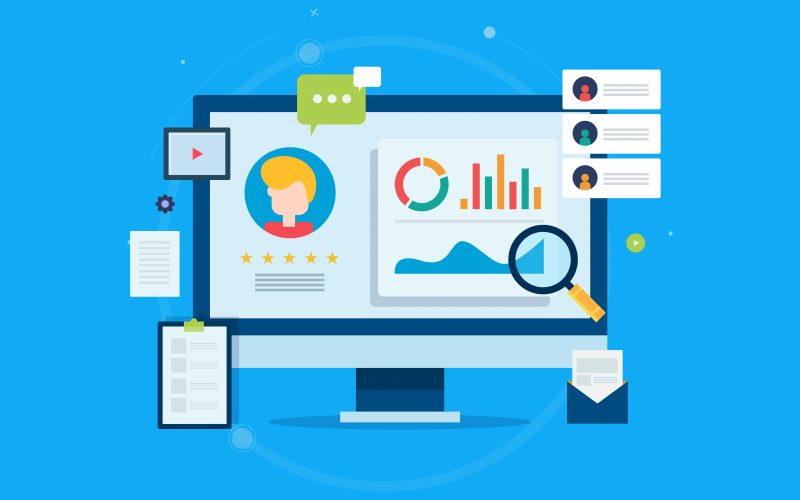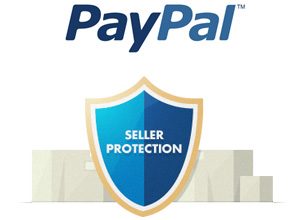Customers are the lifeblood of any business because, without them, it ceases to exist. And the way a company manages its customer base and nurtures its relationship with them determines its success. That said, customer relationship management software, popularly known as CRM solutions, has become one of the most important technologies today.
Understanding CRM Solutions
What is CRM? On a basic level, CRM software helps in managing all your business’s relationships and interactions with your existing and potential customers. Its goal is to improve business-customer relationships that can help your firm grow and increase revenue.
A CRM system also helps in managing customer data, supporting sales management, integrating with social media and other marketing venues, delivering actionable insights, and facilitating team communication.
Choosing The Best CRM Tools For Your Business
The global market for CRM was valued at over USD$52 billion in 2020. The pandemic only accelerated the demand for CRM as businesses seek to create more connections with clients in this digital age. That said, the CRM industry is expected to be worth up to USD$128 billion worldwide. As the CRM industry grows, the number of available solutions also expands. Thus, choosing the right tool for your business becomes challenging.
The following are several factors to consider when choosing from the best CRM tools 2023 has to offer:
#1. Identify Your Needs
To find the right CRM software for your business, you first need to identify your needs and consider your business’s daily activities as well as sales and marketing processes. You need to set objectives and think about the pain points and existing operation problems and requirements you want a CRM to address. Highlight important steps and the types of customer interactions your sales team have.
Remember, a CRM system can help your business become more successful only if you find the right one that aligns with your business goals.
#2. Ask The Users
To better identify your business needs and choose an effective CRM, you want to gather input from various teams and departments that’ll be using the software. Your sales team is the primary user of your CRM. However, it’s important to ask for feedback from all potential users so you can arrive at a decision that’ll benefit different teams and departments.
For instance, if your customer support or marketing departments will also use the CRM, they’re likely to have different feature requests and requirements than your sales agent.
#3. List The CRM Features
Once you’ve reviewed your business goals and asked users for their feedback, it’s time to make a list of features that you’ll need in CRM software. It’s recommended that you create two lists: the must-have feature list and the nice-to-have feature list.
Must-Have Features
This list contains the important, mission-critical CRM feature requirements that your business needs. Some of the essential CRM features include:
- Contact Management
As one of the most vital CRM features, contact management allows you to store and track your contacts in a centralized directory.
- Sales Pipeline
This feature provides a visual representation of your sales process and shows which stage a specific lead is currently at.
- Sales Reporting
Sales analytics and reporting are two of the most important features you need to look at. It gives you a holistic view of your sales performance. You want a CRM that’ll provide you with comprehensive and in-depth sales reporting.
- Lead And Opportunity Management
The ability to quantify the opportunities that your sales team has with a customer is a basic yet essential feature of a good CRM. It provides a systematic process to evaluate and nurture active and incoming leads to increase the chances of converting them.
- Mobile CRM
With everyone having a smartphone these days, mobile CRM has become one of the must-have features of a good CRM. It allows you to track and monitor customer relationships on a remote device. It helps users to view and manage data as well as receive valuable alerts about sales campaigns from their mobile devices.
- Email Marketing
This feature allows you to automate sending marketing and sales materials to your contacts. It also allows monitoring of customer interaction with the emails you send.
- Data Security
This is the one area you don’t want to skimp on. Any reliable CRM should include features that’ll keep your data safe such as advanced user permission or two-factor authentication.
Other than those, you also need to identify any industry-specific features you need. For instance, for real-estate businesses, a must-have CRM feature includes advanced document management and property listing features. For construction agencies, a CRM should offer features for managing projects and monitoring work orders.
Nice-To-Have Features
This list includes useful features but not necessarily needed or won’t impede the ability to obtain your business goal if they’re missing. Some nice-to-have features include time tracking, storage capabilities, and collaboration tools. In general, these are functionalities that you don’t actually need or are already available in other existing software you’re using.
#4. Cloud vs. On-Premise
Other than the features, you also need to consider whether you’ll have an on-premise software or a cloud option.
Cloud CRM solutions mean you don’t need technical expertise or a server on your side. You simply log into the CRM in your internet browser, and you’re ready to go. All your data resides on the provider’s server. That said, if you don’t have an internet connection, then you may not be able to access the data.
An on-premise CRM means you own the software, and it’s hosted at your location. This means you have direct access to the servers and you don’t have to deal with the recurrent subscription charges. However, you’ll need to invest in the necessary software and hardware and hire in-house IT personnel to manage the server. This can incur a higher upfront cost.
In general, small businesses and startups will go with a cloud solution due to the efficiency and convenience it provides.
#5. Budget
The cost of CRM software will vary greatly, so make sure to compare vendors and set a budget. In general, vendors have a subscription-based pricing model. And the pricing will depend on several factors, such as the types of features available and the number of users. Most providers will have a set per-month, per-user fee. Some vendors will charge a flat monthly fee number of users or product tiers.
That said, in order to have the features you want and the number of users it can support, you’ll need to buy a more expensive plan, or there may be additional fees.
There are also free versions of CRM—some are full-featured but have a limited number of users or data storage, and others will only offer the bare minimum features.
Conclusion
There’s no questioning the importance of CRM in your business’s success. Choosing the right CRM tool for your business requires careful planning and research. Remember, there’s no one-size-fits-all CRM solution. So, take time to consider the above factors to make the right choice for your business.






